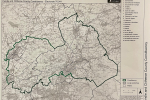
Life-saving first aid skills will be taught to children in secondary schools from next year, the Government has announced.
The Department for Education will make it part of the National Curriculum for children to learn CPR and how to get help in an emergency.
The announcement has been welcomed by campaigners, including Andrew .
Andrew has volunteered as a Community First Responder (CFR) with the North West Ambulance Service since 2014 and has campaigned for first aid to be added to the National Curriculum throughout his 8 years as Pendle’s MP.
Andrew who spent time over the Christmas period responding to 999 calls said “By giving young people the ability, skills and confidence to act when first aid is necessary it does mean we are creating a new generation of life savers. It is going to save lives and take pressure off the NHS as well. It hasn’t been easy because of the amount of pressure on the curriculum, but I am delighted by this decision.”
Under the proposals all secondary school leavers in England will be taught how to administer CPR, to know the purpose of defibrillators and to give basic treatment for common injuries.
The British Heart Foundation (BHF) described the plans as a decisive moment in attempts to improve on the less than 10% survival rate for people in the UK who have cardiac arrests while not in hospitals.
In countries that teach cardiopulmonary resuscitation, or CPR, in schools, cardiac arrest survival rates are more than double those of Britain.
Damian Hinds, the education secretary, said: “On arriving at university I was struck that the American students I met knew how to do CPR, and I didn’t have a clue. As a father I want my children to have the knowledge and skills they need to keep themselves safe and help others, and, as education secretary, I want that for every child.
“Learning the basic skills of first aid and techniques like CPR will give young people the confidence to know that they can step in to help someone else in need, and in the most extreme cases it could potentially save a life.”
The proposals, due to be rolled out in 2020, are part of the Department for Education’s plans to improve health, sex and relationships teaching.
Simon Gillespie, chief executive of the BHF, said: “The Department for Education’s plans to introduce CPR on to the curriculum is a decisive moment in the battle to improve cardiac arrest survival rates, following years of campaigning by the BHF and others.
“There are 30,000 out-of-hospital cardiac arrests every year, and each day people needlessly die because bystanders don’t have the confidence or knowledge to perform CPR and defibrillation.
“This is why all schoolchildren should be given the opportunity to learn these skills. Introducing CPR lessons into health education in all state-funded secondary schools is a significant step that promises to improve the odds of survival for countless people.”

